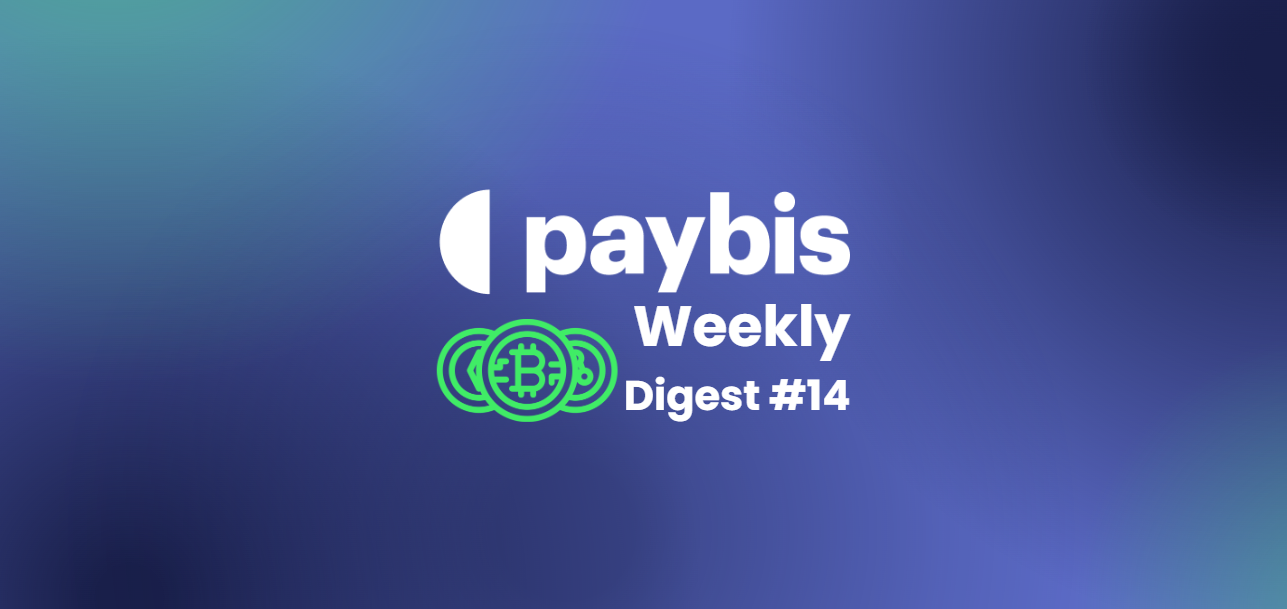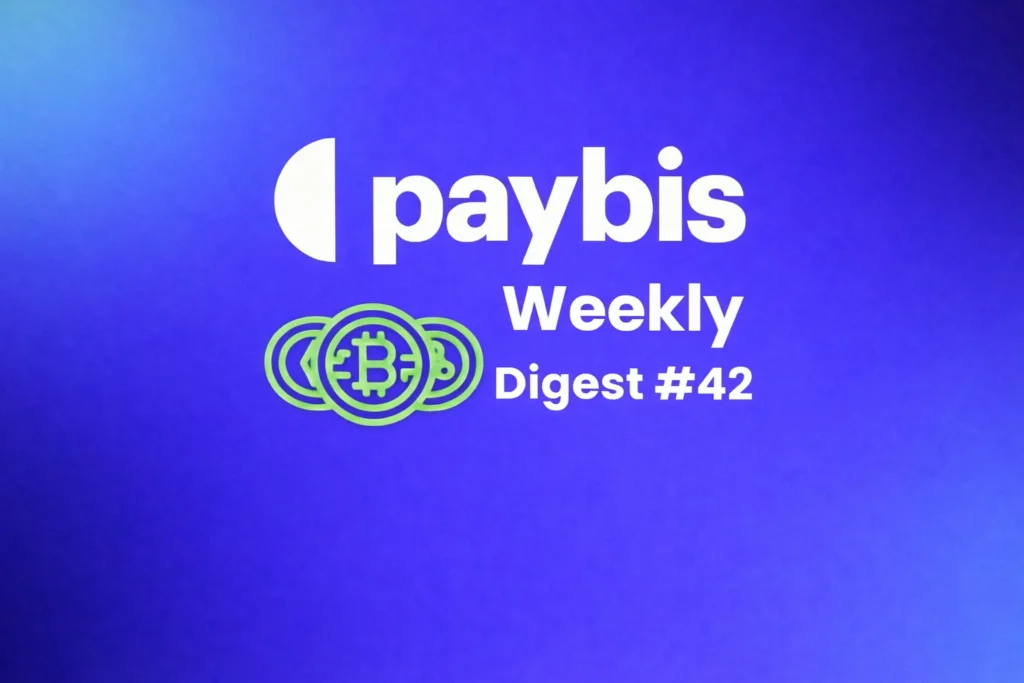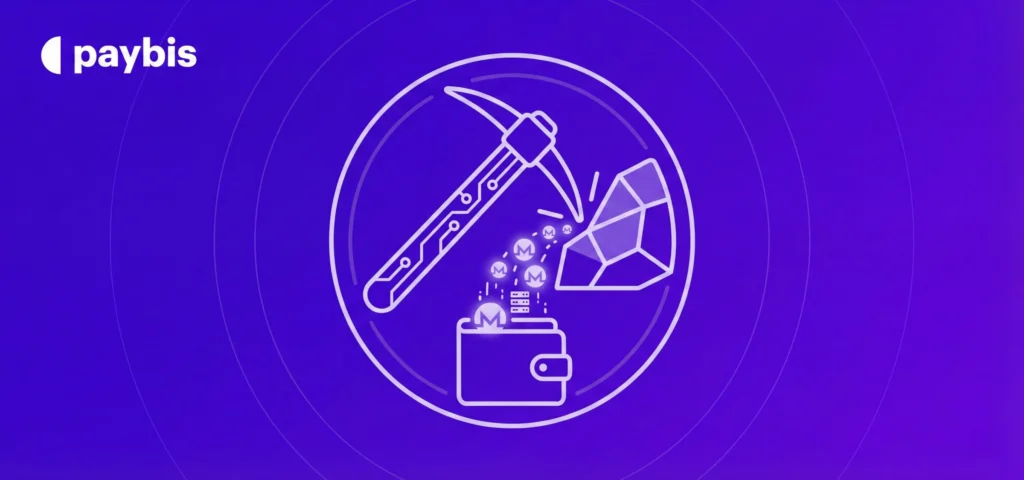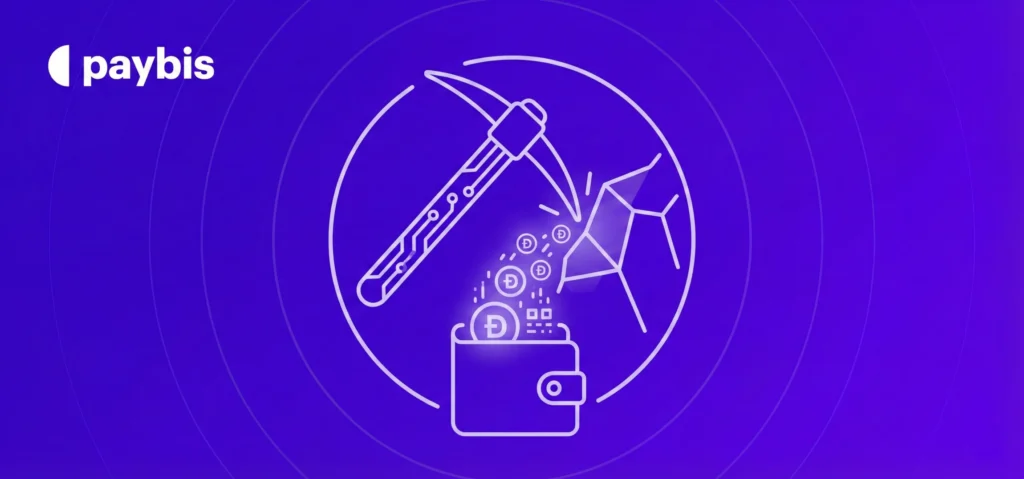Crypto Weekly Wrap Up Featuring XRPL EVM and Tokenized Stocks on Solana
The crypto world remains as fast-paced as ever, with major developments unfolding across multiple ecosystems. From Ripple’s game-changing XRPL EVM mainnet launch to the arrival of tokenized real-world assets (RWA) on Solana, this week was filled with innovation, regulation, and controversy. Here’s your comprehensive look at the top stories that shaped the digital asset space.
Try out Paybis now to buy, sell, swap, and manage your favorite cryptos.
Table of contents
- Ripple Launches XRPL EVM Mainnet Compatible with Ethereum
- Tokenized Stocks (RWAs) Go Live on Solana and CEXs
- Hacker Steals $23M, But Loses $7M While Trading
- European Giants Launch EURAU Stablecoin Compliant with MiCA
- Trader Liquidated 8 Times in 5 Hours, Loses $15M in 10 Days
- Vitalik Buterin Calls for Simplicity and Core Values in Blockchain Development
- Tether to Mine Bitcoin in Brazil Using Renewable Energy
- Tether Mints Another $1 Billion USDT
- Turkey Blocks Access to PancakeSwap
- About Paybis
- Summing Up
Ripple Launches XRPL EVM Mainnet Compatible with Ethereum
Ripple has launched the XRPL EVM mainnet, which allows Ethereum-based applications to run seamlessly on the XRP Ledger. This update makes the network compatible with Solidity smart contracts, enabling a broader range of decentralized applications (dApps) and DeFi tools.
Developers will now be able to port existing Ethereum dApps to XRPL, boosting network utility and adoption. The launch aligns with Ripple’s strategy to compete in the smart contract space and move beyond payments. With this, Ripple strengthens its position in the multi-chain ecosystem and attracts a wider developer base.
Tokenized Stocks (RWAs) Go Live on Solana and CEXs
Tokenized stocks, a key segment of real-world assets (RWAs), are now live on the Solana blockchain, offering faster transactions and lower fees. Centralized exchanges like Kraken and Bybit have also listed tokenized equities, making them accessible to a global audience.
This expansion is a significant milestone in merging traditional finance with decentralized technology. By bringing stocks on-chain, investors can now trade 24/7 without traditional market limitations. The move signals a growing appetite for RWA integration across crypto platforms, potentially unlocking trillions in off-chain value.
Hacker Steals $23M, But Loses $7M While Trading
A hacker managed to exploit a vulnerability and stole approximately $23 million in crypto. However, they lost nearly $7 million due to poor trade execution and market volatility after the theft. This unusual incident highlights the inherent risks of on-chain trading, even for malicious actors. Some speculate the hacker attempted to launder the funds through decentralized protocols but miscalculated slippage and liquidity.
European Giants Launch EURAU Stablecoin Compliant with MiCA
Several major European financial institutions have introduced EURAU, the first fully licensed euro-backed stablecoin. The launch is in direct compliance with the EU’s Markets in Crypto-Assets (MiCA) regulatory framework, which came into effect earlier this year. EURAU aims to provide a stable, transparent digital euro alternative for DeFi, cross-border payments, and institutional settlements.
By complying with MiCA, EURAU sets a precedent for legal clarity and consumer protection in stablecoin issuance. This development could trigger wider euro stablecoin adoption across European and global markets.
Trader Liquidated 8 Times in 5 Hours, Loses $15M in 10 Days
A crypto trader suffered an extraordinary string of liquidations, being wiped out eight times within a five-hour period. Over the course of just 10 days, their losses surpassed $15 million, according to on-chain analysts.
The trader reportedly used high leverage on volatile altcoins, which amplified both risk and losses. This case illustrates the dangers of aggressive margin trading in unpredictable markets. It serves as a stark warning to retail and institutional traders alike to use risk management tools, or face catastrophic outcomes.
Vitalik Buterin Calls for Simplicity and Core Values in Blockchain Development
Ethereum co-founder Vitalik Buterin has called on blockchain developers to return to the foundational principles of crypto: user freedom and privacy. In a recent post, Buterin argued that developers are becoming too focused on overly complex solutions and technical novelty. He emphasized that simplicity, usability, and ethical values should take precedence in Web3 innovation.
Buterin’s comments come amid a wave of sophisticated Layer 2 protocols and rollups that may alienate users due to their complexity. His message resonates with a growing faction of developers who believe crypto must remain accessible and values-driven.
Tether to Mine Bitcoin in Brazil Using Renewable Energy
Tether has announced plans to begin mining Bitcoin in Brazil using renewable energy sources. The move is part of the company’s broader strategy to invest in sustainable infrastructure while supporting the Bitcoin network. Tether will collaborate with local energy firms to power mining operations through solar and hydroelectric sources.
This marks another major step in the industry’s transition toward greener practices, especially amid global scrutiny of Bitcoin’s environmental impact. Brazil’s energy-rich regions could offer a competitive advantage, potentially making Tether a significant player in Latin American mining.
Tether Mints Another $1 Billion USDT
Tether, the issuer of the largest stablecoin in the world, minted 1 billion new USDT tokens this week. The minting occurred on the Tron blockchain and is likely intended for future issuance and liquidity provisioning. Such large-scale mints are often interpreted as bullish signals, reflecting rising demand in trading and DeFi markets.
However, they also reignite debates over transparency, reserves, and the systemic impact of USDT on the broader crypto economy. As stablecoins grow in influence, Tether’s activity continues to be closely monitored by analysts and regulators.
Turkey Blocks Access to PancakeSwap
The Turkish government has blocked domestic access to PancakeSwap, a leading decentralized exchange (DEX) on BNB Chain. The move is part of a broader regulatory effort to monitor and restrict unlicensed financial services operating within the country. While the official reason remains unclear, it’s believed to be linked to investor protection and anti-money laundering concerns.
The block raises questions about digital freedom and decentralized finance access in authoritarian jurisdictions. Turkish users are already seeking VPNs and alternative methods to bypass the restriction, illustrating the persistence of demand despite regulatory barriers.
About Paybis
Paybis is a global cryptocurrency exchange platform that provides fast, secure, and user-friendly digital asset transactions. Founded in 2014, the company specializes in fiat-to-crypto and crypto-to-fiat conversions, enabling users to buy, sell, and swap Bitcoin, Ethereum, and other cryptocurrencies using various payment methods, including credit/debit cards, bank transfers, and e-wallets.
Try out Paybis now to buy, sell, swap, and manage your favorite cryptos.
With a strong focus on security and compliance, Paybis is registered with regulatory authorities and implements industry-leading AML/KYC procedures. The platform is known for its intuitive interface, 24/7 customer support, and competitive exchange rates, making it a preferred choice for both beginners and experienced traders.
Summing Up
From ecosystem expansion and new stablecoins to cybersecurity drama and regulatory clampdowns, the crypto industry continues to evolve at lightning speed. As legacy institutions and blockchain innovators converge, the next phase of crypto adoption will likely be defined by compliance, infrastructure development, and a renewed focus on decentralization.
Disclaimer: Don’t invest unless you’re prepared to lose all the money you invest. This is a high‑risk investment and you should not expect to be protected if something goes wrong. Take 2 mins to learn more at: https://go.payb.is/FCA-Info



